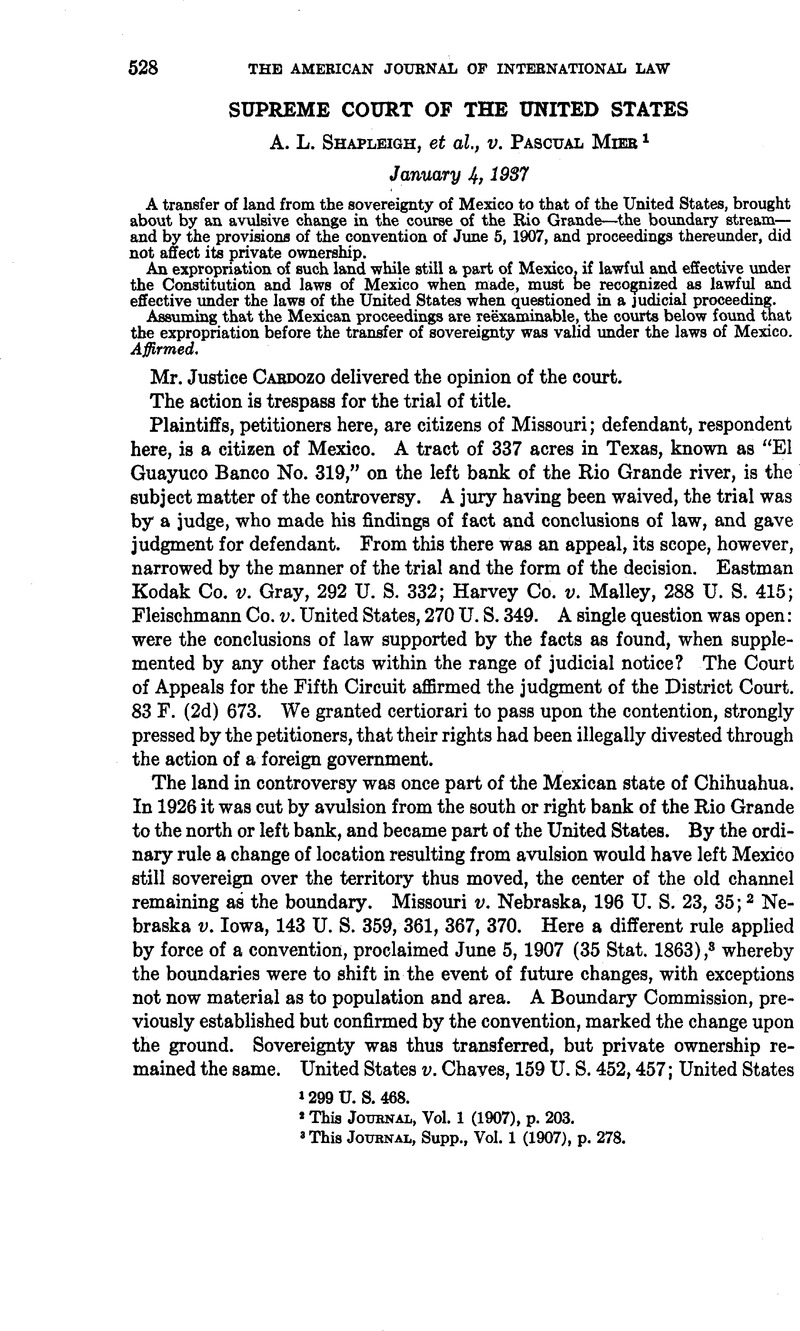Published online by Cambridge University Press: 12 April 2017

299 U.S. 468
2 This Journal, Vol. 1 (1907), p. 203.
3 This Journal, Supp., Vol. 1 (1907), p. 278.
4 This Journal, Vol. 12 (1918), p. 421.
5 Ibid., p. 417.
6 Ibid., Vol. 3 (1909), p. 1006.
7 This Journal, Sapp., Vol. 18 (1924), p. 147.
* Constitution of Mexico, 1917, Article 27:
“Private property shall not be expropriated except for reasons of public utility and by means of indemnification.
“The Nation shall have at all times the right to impose on private property such limitations as the public interest may demand as well as the right to regulate the development of natural resources, which are susceptible of appropriation, in order to conserve them and equitably to distribute the public wealth. For this purpose necessary measures shall be taken to divide large landed estates; to develop small landed holdings … Private property acquired for the said purposes shall be considered as taken for public utility” .
“During the next constitutional term, the Congress and the State Legislatures shall enact laws, within their respective jurisdictions, for the purpose of carrying out the division of large landed estates, subject to the following conditions”.
“(e) The owners shall be bound to receive bonds of a special issue to guarantee the payment’ of the property expropriated. With this end in view, the Congress shall issue a law authorizing the States to issue bonds to meet their agrarian obligations.”
Agrarian Law of the State of Chihuahua:
“Article third: Owners of larger extensions of lands than those prefixed in Article 1st, are under the obligations to divide into fractions their lands, and, to this effect a term of ninetydays is granted them from the date on which this law goes into effect, so that they may select the extension of land they can keep; and another term of six months, from same date, is granted them for the formulation of the project for the division into fractions of the land in excess, which project is to be submitted to the Executive of the State for its approval attaching thereto corresponding plats of the land together with authentic title deeds.”
“Article sixth: By the mere fact that the owners, do not present the plats to the Executive of the State in the form and terms as provided for in the Article 3rd., it shall be understood” that they refuse to divide the latifundium, into fractions, and the Executive of the State shall carry it out (the division into fractions of said latifundium) by means of expropriation in accordance to provision of subsection C, or the Section VII of Article 27th, of the General Constitution.”